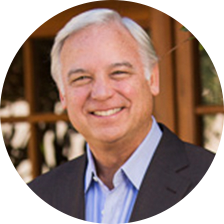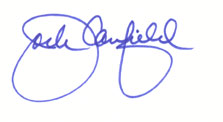Being On Purpose
I think we are all born with a deep and meaningful purpose that we have to discover. Your purpose is not something you need to makeup; it’s already there. You have to uncover it. You can begin to discover your purpose by exploring two things:
- 1. What do you love to do?
- 2. What comes easy to you?
Of course, it takes work to develop your talents- even the most gifted musician still has to practice-but it should feel natural, like rowing downstream rather than upstream. I love to teach, to write, to coach, to facilitate, to train, and to develop transformational seminars, workshops, and courses. I love to bring other leaders together for conferences and to co-create new approaches to our work.
These things come easy for me. Although I invested many years in learning how to master these skills, I loved every minute of it. In other words, work is required, but suffering is not. If you are struggling and suffering, you are probably not living on purpose.
But what if I am still searching for my purpose?
Let me share with you a quick little exercise from my book The Success Principles that may help you discover your purpose.
First, ask yourself, What are two qualities I most enjoy expressing in the world? Mine are love and joy.
Second, ask yourself, What are two ways I most enjoy expressing these qualities? Mine are inspiring and empowering people. I inspire people with the moving stories that I tell in my seminars and that I write about in my books, and I empower them by teaching them powerful success strategies that they can apply in their own lives.
Once you’ve answered these questions, take a few moments and write a description of what the world would look like if it were operating perfectly according to you. In my perfect world, everybody is living their highest vision where they are doing, being, and having everything they want. Finally, combine all three of the above into one statement, and you will have a clear idea of your purpose. Mine is “inspiring and empowering people to live their highest vision in a context of love and joy.”
Can you share examples of “living on purpose”?
One of my life coaching students, Dr. Sudheer Gogte, a successful cardiologist, was struggling to identify his purpose. I suggested another exercise from my book, and asked him to look back over his life and answer the question, When have I felt most fulfilled?
He shared three periods in which he felt the happiest and most fulfilled. First, he told me about a time with his grandfather when he was growing up in India. The second was his experience of playing with his own grandchildren. The third was a time he spent vacationing on a sailboat. When I asked him what was common to all three of these experiences, he told me that it was the sense of freedom that he felt.
Noticing that none of his three experiences related to his profession in medicine, I asked him to tell me about his most fulfilling experiences as a doctor. The incidences he reported were when he had donated his services for free or for a lesser fee than his partners thought he should have charged. He shared about a time when he too a much longer time than usual during an office visit to support and encourage a family who where in fear of losing their father during an impending heart surgery. As we examined his life further, it became apparent that he took very little time for himself. He was always n call, always working late, always overscheduled with little or no free time for self-care. I asked him why this was so. He answered that people could die if he didn’t attend to them. The problem became clear: By attending only to patients and never to himself, he was-in a sense- dying.
The drive this point home, I asked Sudheer what he would do in the following situation: “ A patient comes to you for an operation. If you operate on this patient, you will die. If you don’t operate on him, he will die. It’s him or you. What would you do?” He reflected quietly on this scenario for along time, and the finally he said, “I would choose to live, rather than die myself. It doesn’t make sense to kill myself to save others.” This was a turning point in his life. He later told me that while he still wants to serve people, he now knows he has a right to take care of himself-his mind, his body, and his needs. This cardiologist now places a higher value on doing what truly comes from his heart, not someone else’s.


